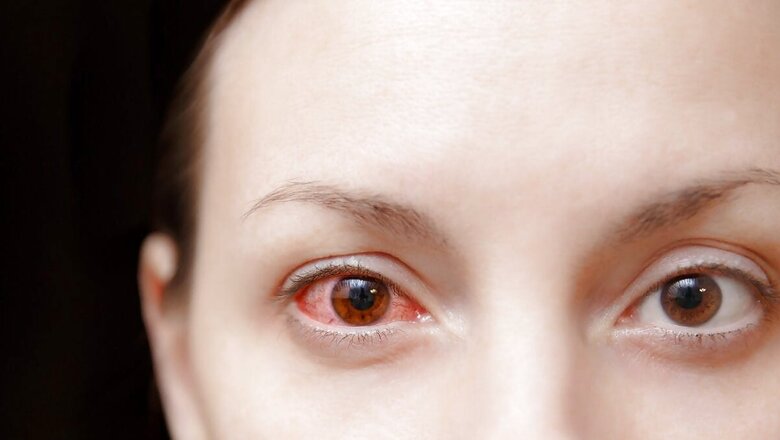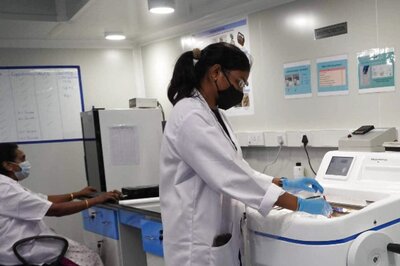
views
Conjunctivitis cases, most commonly referred to as ‘eye flu’ are on the rise due to infections triggered by monsoon and seasonal changes. Over 39,000 cases of conjunctivitis are reported in Maharashtra alone.
According to health experts, the recent spell of rain which resulted in waterlogging and a surge in stagnant water gives birth to waterborne bacteria and viruses that cause eye infections.
Some common symptoms of conjunctivitis include redness and/or itching in one or both eyes and excessive tear discharge.
What is Conjunctivitis?
Conjunctivitis refers to the inflammation or infection of the conjunctiva, which is part of the eye. It causes redness in both primary care and the emergency department. Conjunctivitis is the most prevalent aetiology of eye redness and discharge.
Causes of Conjunctivitis
Some of the most common causes of Conjunctivitis are viruses, bacteria, allergies or some chemical exposure. The present surge in eye infections is mostly due to water-borne bacteria and viruses.
Cases on rise
Doctors in Safdurjung Hospital say that over 80-100 cases of Conjunctivitis are being reported every day ever since the rains lashed the national capital.
Over 2,500 cases were reported in Pune in one week. Buldhana reported over 6,693 Conjunctivitis cases so far.
Teachers Request Closure of Schools Till July 31 Amid Rise in Conjunctivitis
Earlier this week, MCD teachers wrote to Mayor Shelly Oberoi, requesting prompt action and the closure of schools till July 31 to control the spread of the infectious disease among children.
The letter was written by Shikshak Nyay Manch, an MCD teachers’ union, asking Ms Oberoi to take cognisance of the rampant cases of eye infections in MCD schools
Do Sunglasses Stop the Spread of Conjunctivitis?
According to doctors, glasses may help in preventing irritation and make teary, stinging eyes hurt less but it does not stop transmission of the ocular infection and thus people shouldn’t think that wearing shades and going to crowded places or offices will spare others the infection.
Why has there been a spike in Conjunctivitis cases in Mumbai?
As per the experts, the prolonged monsoon season has created a more humid environment which is ideal for the growth of bacteria and viruses. In such times, the increased use of public transportation and contact with contaminated environments can spread germs from person to person.
What should I do if I think I have conjunctivitis?
Most cases of viral Conjunctivitis usually clear up in 7 to 14 days without treatment and any long-term consequences. However, in cases triggered by seasonal viruses, one must consult a doctor who can prescribe suitable medicines for such infections.
Apart from this, a patient can practice basic prevention and hygiene to keep the area clean and ensure that the infection doesn’t spread.



















Comments
0 comment